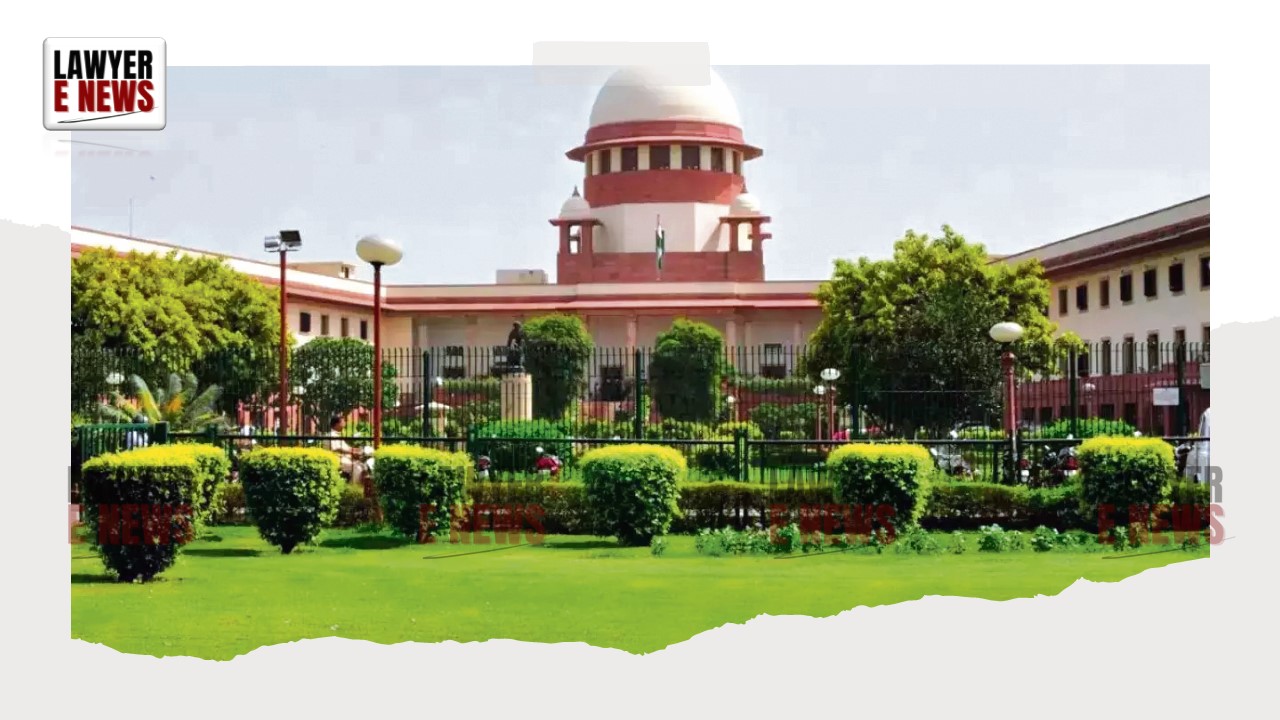-
by Admin
15 February 2026 2:36 AM



“The evidence produced by a claimant must be credible, corroborated, and sufficient to establish co-tenancy rights. Mere reliance on inadmissible or self-serving documents cannot suffice,” the Supreme Court held while dismissing an appeal related to a co-tenancy claim under the U.P. Consolidation of Holdings Act, 1953.
Supreme Court on November 21, 2024, upheld the Allahabad High Court's judgment, which restored the Consolidation Officer's dismissal of Smt. Gulabi’s claim to co-tenancy rights. The Court ruled that the evidence produced by the claimant (Smt. Gulabi) was insufficient, contradictory, and failed to meet the burden of proof required under Section 101 of the Indian Evidence Act, 1872.
The bench, comprising Justice C.T. Ravikumar and Justice Sanjay Karol, reaffirmed that revisional authorities under Section 48 of the U.P. Consolidation of Holdings Act cannot reappreciate evidence de novo unless findings are perverse or contrary to law. The Court also emphasized that unexplained delay and laches in asserting land rights, in this case spanning over 14 years, further weakened the claimant's position.
"Claimants Must Prove Paternity and Possession with Sufficient Evidence," Supreme Court Emphasizes
The Court underscored that in disputes over co-tenancy rights, the burden of proof lies squarely on the claimant to establish lineage, possession, and legal entitlement. It held:
“The law requires claimants to prove their assertions through credible evidence. Unsupported testimonies, contradictory statements, and unreliable documents cannot discharge the burden of proof under Section 101 of the Indian Evidence Act.”
The appeal arose from a co-tenancy dispute involving land recorded under Khata Nos. 38 and 193 in Deoria, Uttar Pradesh. Smt. Gulabi, claiming to be the daughter of Algoo and a successor to Aftee, filed objections in 1973 under Section 9 of the U.P. Consolidation of Holdings Act, seeking co-tenancy rights over the disputed land.
The Consolidation Officer, in 1975, rejected her objections, citing insufficient evidence of paternity and possession. This decision was overturned by the Settlement Officer and the Deputy Director of Consolidation, who found in favor of Smt. Gulabi. However, the Allahabad High Court, in 2011, quashed the findings of the appellate and revisional authorities, reinstating the Consolidation Officer's dismissal.
The Court clarified that the onus to prove paternity and co-tenancy rights rested on the claimant, as per Section 101 of the Indian Evidence Act, 1872. In this case, Smt. Gulabi failed to produce credible evidence to establish her claim.
“The claimant relied on a birth register riddled with factual inaccuracies and discrepancies. Neither the person who maintained the register nor anyone who could corroborate its authenticity was examined. Such unreliable evidence cannot suffice to establish lineage or rights over the disputed land.”
The Court also observed inconsistencies in the oral testimonies presented by Smt. Gulabi’s witnesses. For instance, a key witness, Jhagru, contradicted himself during cross-examination, stating at one point that he did not know Gulabi’s father and at another that she was the daughter of someone else entirely.
The Court reiterated the limited scope of revisional powers under Section 48 of the U.P. Consolidation of Holdings Act. Revisional authorities may interfere only when findings are perverse, unsupported by evidence, or contrary to law.
The Court cited Ram Dular v. Dy. Director of Consolidation, Jaunpur (1994) and observed:
“The Deputy Director of Consolidation exceeded his jurisdiction by reappreciating evidence de novo and overturning the Consolidation Officer’s findings without identifying any legal or procedural irregularities.”
The Court noted that the mutation order, which recorded the disputed land in the name of Sehati (a relative of the respondents), was issued in 1959, yet no objection was raised by Smt. Gulabi until 1973, after a delay of 14 years.
“Such unexplained delay reflects laches and impacts the credibility of the claimant’s case. While no statutory limitation applies to raising objections under consolidation proceedings, unreasonable delay can weaken a claim and affect its admissibility.”
The Court scrutinized the evidence presented by Smt. Gulabi, including oral testimonies, voter lists, and the birth register. It found the following issues:
Oral Testimonies: Witnesses presented by Smt. Gulabi were deemed unreliable and contradictory. For instance, one witness claimed to know nothing about her parentage but simultaneously asserted her relationship to the disputed land.
Birth Register: The document contained errors and was unsupported by corroborative evidence, such as testimonies from family members or officials who maintained the register.
Voter Lists: The Court noted that voter lists are prepared based on self-declared information and cannot independently establish co-tenancy rights.
“The evidence relied upon by the claimant is riddled with contradictions and lacks the corroboration necessary to meet the burden of proof. Courts cannot base their findings on such unreliable material.”
The Supreme Court upheld the High Court’s decision to restore the Consolidation Officer’s order, which rejected Smt. Gulabi’s claim. The Court noted that the Consolidation Officer’s findings were supported by the evidence and free from legal or procedural irregularities.
The Court praised the High Court’s exercise of jurisdiction under Article 226 of the Constitution, stating:
“The High Court acted within its supervisory jurisdiction to correct errors of law and fact committed by the appellate and revisional authorities. Such intervention was necessary to uphold the rule of law.”
The Supreme Court dismissed the appeal, affirming the High Court’s judgment. It held:
“The findings of the Consolidation Officer, which were based on a proper appreciation of evidence, have been rightly restored by the High Court. The appellate and revisional authorities erred in reversing these findings based on inadmissible and unreliable evidence. The appeal is, therefore, dismissed.”
Burden of Proof: Claimants must produce credible and corroborated evidence to substantiate claims over disputed land.
Revisional Powers: Revisional authorities under Section 48 of the U.P. Consolidation of Holdings Act cannot reappreciate evidence de novo but must limit themselves to correcting legal and procedural irregularities.
Delay and Laches: Unreasonable delay in asserting rights can weaken a claim and affect its admissibility.
Supervisory Jurisdiction: High Courts can exercise supervisory jurisdiction to correct errors of law and fact in lower tribunal decisions.
Date of Decision: November 21, 2024
